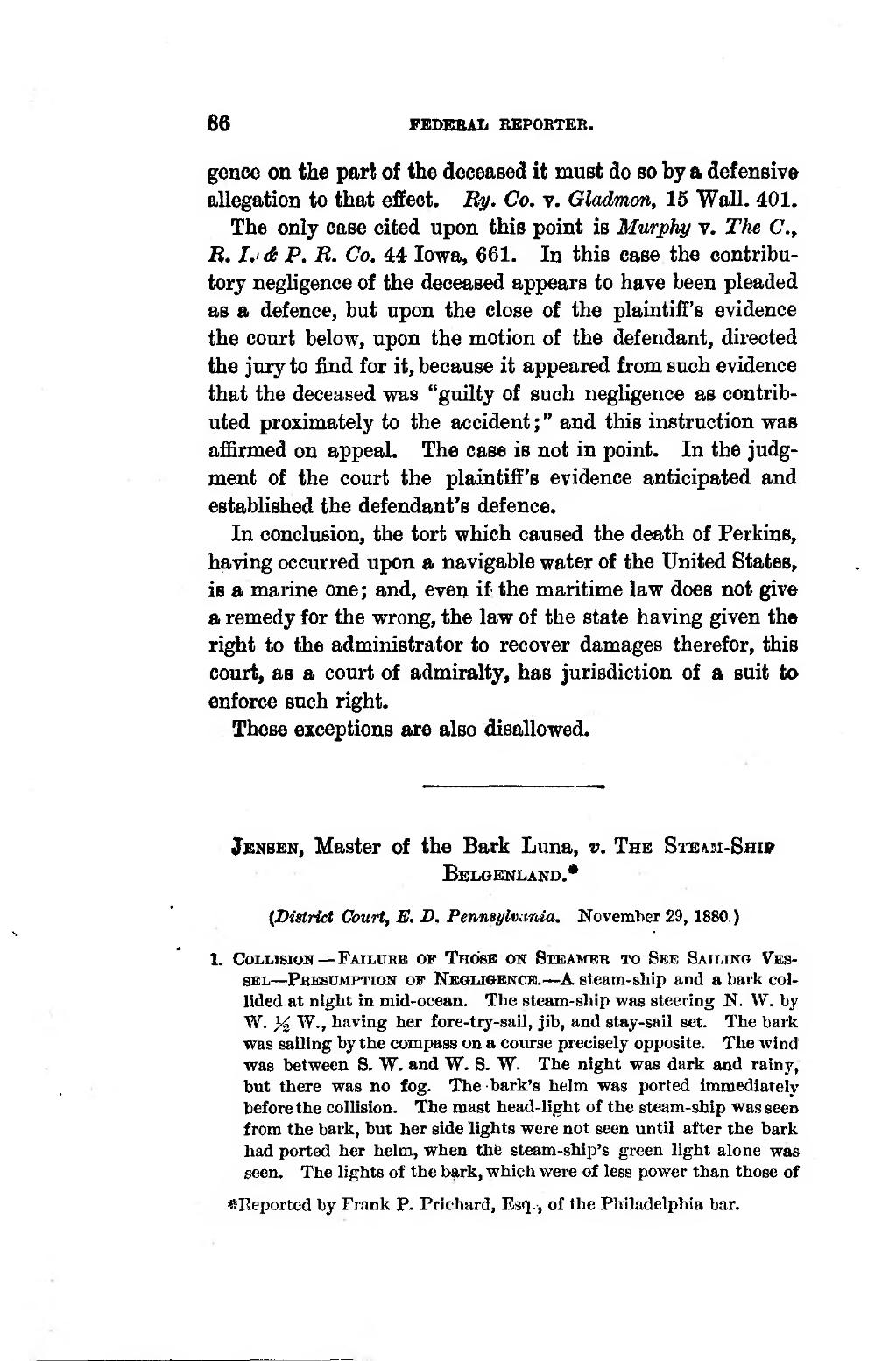66 FEDERAL REPORTER. �gence on the part of the deceased it muet do so by a defensive allegation to that eflfect. Ry. Co. v. Gladmon, 15 Wall. 401. �The only case cited upon this point is Murphy v, The C, R. 1,1 e P. R. Co. 44 lowa, 661. In this case the contribu- tory negligence of the deceased appears to have been pleaded as a defence, but upon the close of the plaintiff's evidence the court below, upon the motion of the defendant, direoted the jury to find for it,becau8e it appeared from such evidence that the deceased was "guilty of such negligence as contrib- uted proximately to the accident ; " and this instruction was affirmed on appeal. The case is not in point. In the judg- ment of the court the plaintiff's evidence anticipated and established the defendant's defence. �In conclusion, the tort which caused the death of Perkins, having occurred upon a navigable water of the United States, is a marine one ; and, even if the maritime law does not give a remedy for the wrong, the law of the state having given th» right to the administrator to recover damages therefor, this court, as a court of admiralty, bas jurisdiction of a suit to enforce such right. �These exceptions are also disallowed. ���Jensen, Master of the Bark Luna, v. The Stbam-Ship Beloenland.* �{District Court, E, D, Pennai/hania. November 29, 1880. ) �, Collision — Fatlitrk of Thosb on Steamer to See Saimno Vks- BEL — PuEsUMPTioN OP Neglioence. — A steato-ship and a bark col- lided at night in mid-ocean. The steam-ship was steering N. W. by AV. }£ W., having her fore-try-sall, jib, and stay-sail set. The bark was sailing by the compass on a course precisely opposite. The wind was betweea S. W. and W. 8. W. The night was dark and rainy, but there was no fog. The bark's helm was ported immedialely before the collision. The mast head-light of the steam-ship was seen from the bark, but her side lights were not seen until after the bark had ported her helm, when the steam-ship's green light alone was seen. The lights of the bark, which were of less power than those of �«Reportod by Frank P. Pricliard, Esiï., of tho Philadelphia bar. ����
